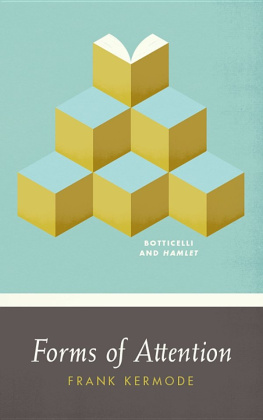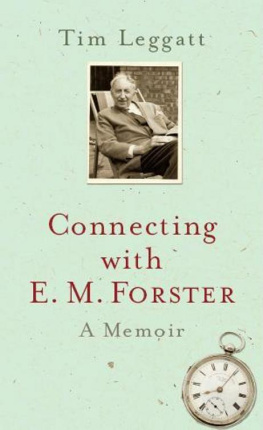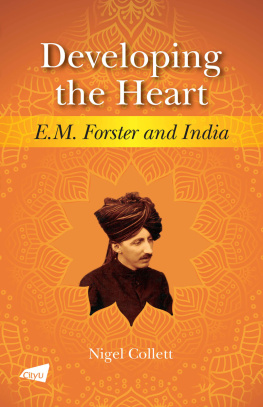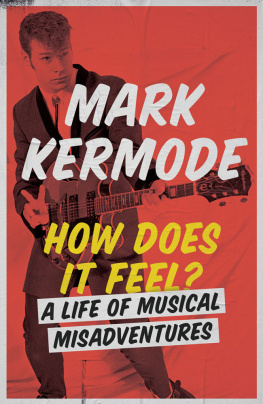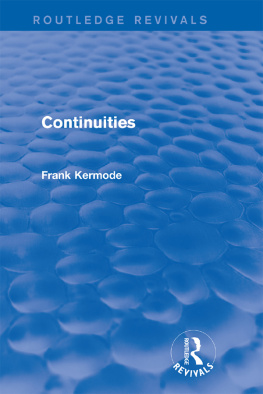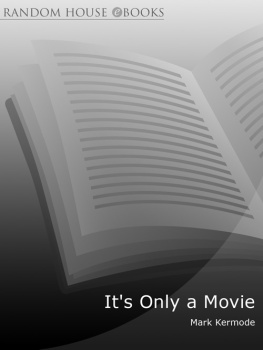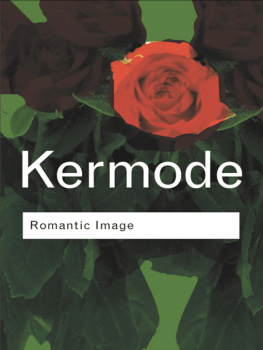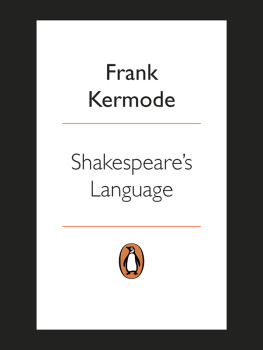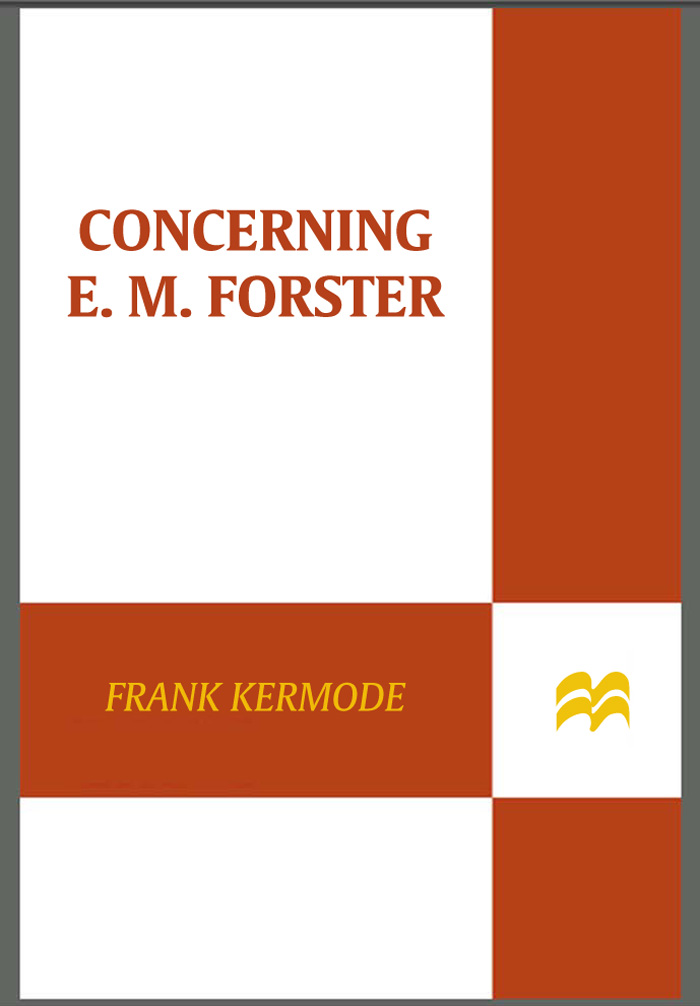Concerning E. M. Forster
ALSO BY FRANK KERMODE
Romantic Image
Wallace Stevens
Puzzles and Epiphanies: Essays and Reviews, 19581961
The Sense of an Ending: Studies in the Theory of Fiction
Shakespeare, Spenser, Donne
D. H. Lawrence
The Classic: Literary Images of Permanence and Change
The Genesis of Secrecy: On the Interpretation of Narrative
The Art of Telling: Essays on Fiction
Forms of Attention
History and Value
An Appetite for Poetry
The Uses of Error
Poetry, Narrative, History
Not Entitled: A Memoir
Shakespeares Language
Pleasing Myself: From Beowulf to Philip Roth
Pieces of My Mind: Essays and Criticism 19582002
The Age of Shakespeare
CONCERNING
E. M. FORSTER
FRANK KERMODE
FARRAR, STRAUS AND GIROUX
NEW YORK
Farrar, Straus and Giroux
18 West 18th Street, New York 10011
Copyright 2009 by Frank Kermode
All rights reserved
Printed in the United States of America
Originally published in 2009 by Weidenfeld and Nicolson, Great Britain
Published in the United States by Farrar, Straus and Giroux
First American edition, 2009
A portion of this book originally appeared, in slightly different form, in New England Review.
Library of Congress Cataloging-in-Publication Data
Kermode, Frank, 1919
Concerning E. M. Forster / Frank Kermode. 1st American ed.
p. cm.
Includes bibliographical references and index.
ISBN 978-0-374-29899-9 (alk. paper)
1. Forster, E. M. (Edward Morgan), 18791970Criticism and interpretation. I. Title.
PR6011.058 Z695 2009
823'.912dc22
2009039143
www.fsgbooks.com
10 9 8 7 6 5 4 3 2 1
Contents
Introduction
The three chapters which form Part One of this book were given as the Clark Lectures in 2007. I must at the outset express my gratitude to the Master and Fellows of Trinity College, Cambridge for inviting me to give them and then entertaining me so splendidly.
Choosing E.M. Forster as my main topic was partly a matter of sentiment. Forster had served as Clark Lecturer in 1927. His lectures on the novel enjoyed a considerable popular success, which was augmented when they appeared in book form as Aspects of the Novel in the same year. While the lectures were still in progress he had the additional satisfaction of being elected into a Supernumerary Fellowship at Kings, the college to which he had been admitted as an eighteen-year-old undergraduate in 1897. His association with Kings, never seriously interrupted, was further strengthened when he became an Honorary Fellow in 1946. In that year he also accepted an invitation to reside in college a quite unusual offer, as his biographer P.N. Furbank remarks. At first he was not sure whether he would enjoy living in college, and in the busy years that followed he was often absent from Cambridge, but from 1953 till his death in 1970 his home was in Kings.
My relationship with Kings was quite different. I graduated from Liverpool University in 1940 and returned there as a research student after the war, in 1946. In 1947 I went to Newcastle University then a college of the University of Durham as a lecturer, but in order to go on enjoying the influence of a Liverpool teacher, who in 1950 moved to a professorship at Reading University, I followed him there. My next moves, in 1958 and 1965, were to Chairs at Manchester and Bristol, but in 1967 I came to what I supposed might be the last of them, to the Lord Northcliffe Chair at University College, London. But this wasnt, after all, to be my last move, for I was in 1973 offered the King Edward VII Chair at Cambridge, and in the following year I was elected into a fellowship at Kings College. Indeed I moved into college and for a year occupied a pleasant set of rooms looking across the back lawn to Clare, an agreeable sight in almost all weathers. I gave up that set and moved out, but remained a Fellow to retiring age in 1987, when I was granted an Honorary Fellowship.
Im conscious that all this academic detail is tedious, but it seemed necessary to explain that my decision to talk about Forster had its origins in some transitory and fleeting resemblances or coincidences as well as in differences in class and education that would be reflected in my lectures. When I moved into Kings in 1974 I had known Forsters novels for half a century, but I knew very little about Cambridge or the college, and that kind of knowledge I lacked was the kind that is acquired slowly, and preferably earlier in life. I was now in daily contact with men who had known Forster well courtly, serious men who welcomed the newcomer but were not particularly interested in talking about Forster at a time of rapid change in the life of the college, which had only very recently begun to admit women students.
There are happily still some survivors, men who knew Forster when they were undergraduates and encountered him quite casually in the college or were asked to tea and even to accompany him on holidays abroad. Some claimed to have liked him extremely, and some did not. The most remarkable of these survivors is P.N. Furbank, Forsters biographer, the editor of his letters, and a great reservoir of information about Forster, with whom he was, to the benefit of all his readers, on familiar and affectionate terms.
I myself met the great man only once for ten minutes or so, I think in 1955. He was patient but understandably a little bored or tired, and I remember the conversation best because he told me that the caves in A Passage to India should be pronounced Marbar and not Marabr. As he explained in the notes he wrote for the Everyman edition of the novel in 1942, the name of the caves was adapted from that of the real Barabar Hills. He had visited Barabar in 1913, and the caves of the novel are imaginatively based on what he saw there there is an elaborate description in Forsters letter to his mother, dated 25 January 1913 (Selected Letters, I. 183ff.). The main difference between Barabar and Marabar is that the caves on the Barabar are... known to be Buddhist, and their entrances are not unornamented. Furbank in his biography (I. 247n) says that Forster, much later, told him the caves were not all that remarkable... until they got into his book. As to my brief conversation with the master, it ended, I think, with an allusion to Forsters specialized use, in A Passage to India, of the word extraordinary, introduced in the first sentence of the novel. Then my time was up. From my point of view it was, I thought, quite well spent, though he would probably have judged it differently.
I have situated myself in Forsters college, but have so far omitted to explain how I came to be there after all, there were a good many others I might have found myself in. The university had accepted me as a professor, but a professor without a college is a rare and probably disconsolate figure, and I needed to attach myself. Up till then, as explained above, I had worked outside Oxbridge and knew rather little about it or its colleges I had been there neither as an undergraduate nor as a teacher. There were other potential disqualifications: I was a grammar school boy making a belated appearance on this very different scene at the possibly inflexible age of fifty-four, and there was no particular reason why people should want me as a colleague, especially as at that date professors were not permitted to teach undergraduates, which is, after all, the main business of a college. Moreover there was some kind of quota system which allowed even colleges that might want them only a limited number of such appointments.


